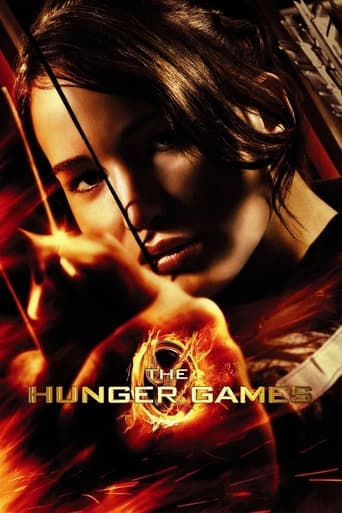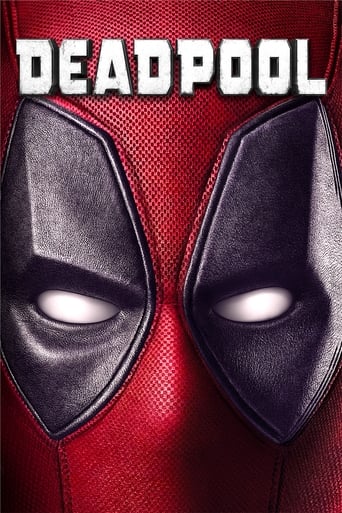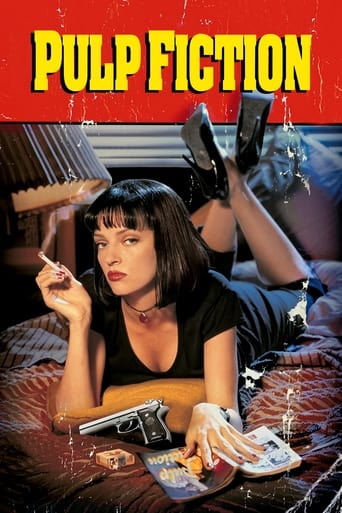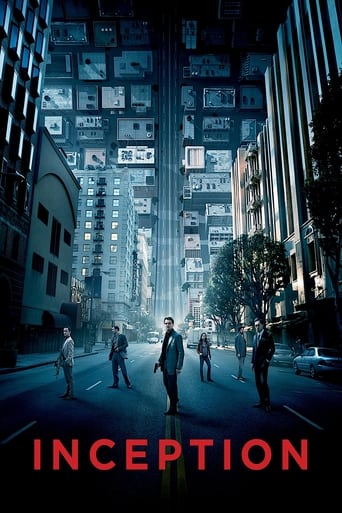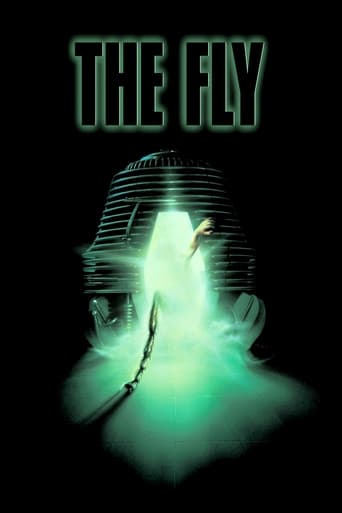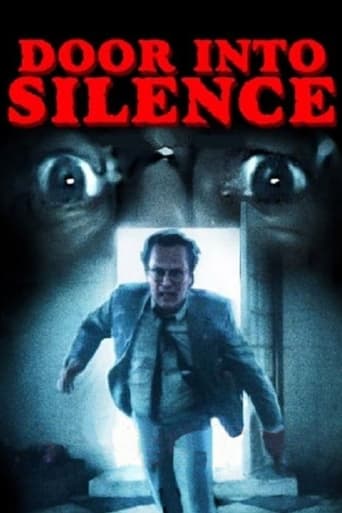


Door to Silence
Successful businessman Melvin Dovereux is caught in a traffic jam caused by a funeral procession. Soon he is haunted by visions of a hearse chasing him and a woman in a sports car. Could the funeral procession actually be for him?
-
- Cast:
- John Savage , Sandi Schultz


Reviews
If you don't like this, we can't be friends.
I gave it a 7.5 out of 10
Better Late Then Never
This is a tender, generous movie that likes its characters and presents them as real people, full of flaws and strengths.
For what turned out to be his final project, Lucio Fulci opted for something different, a type of film that he really hadn't made before - a Rod Serling kind of tale of the journey of an American businessman in search of answers regarding his own existence. As this man drives through the Louisiana countryside he encounters a strange woman several times as well as a hearse with his name on the coffin. It doesn't take long before he realizes something is up and he frantically attempts to discover what it is. John Savage is superb as the confused Melvin Devereux, likely the greatest performance of his career that I've seen. He doesn't overplay or underplay, and his reactions are seemingly entirely natural. The other actors and actresses in "Door To Silence" cannot compare to Savage but do very well nonetheless, while Fulci directs with a subtle fluidity and sense of reflective affection which had become increasingly rare for the master after his career really took off circa 1980. This isn't a perfect film, there are a couple of slightly poor edits and several 'what the hell' parts (a motel stay for 15 minutes, a phone that rings before dialing, etc. - although these can be seen as being perfect for the unreality of Melvin's situation). The same camera problem that plagued "Demonia" also pops up in "Door To Silence" here and there, but not to the same extent nor to the film's detriment.Sadly enough, I don't know if this final effort will ever be truly accepted. It's not generally of interest to Fulci's fans as it's not horror, and despite it's artistic cult appeal, Fulci is unknown to the art-house audience (if not outright vilified). It is really a shame that despite the high quality of "Door To Silence", Fulci's name was replaced with a fictional one for apparently some bizarre commercial reasons. "Door To Silence" is a near-masterpiece and more than deserves to be seen, and now can be due to it's very welcome release on DVD by Severin. Check it out while you can, you won't be sorry.
As has been stated, this is Lucio's last film. I watched it last night and I happen to think it's one of his best. It has aged well.The plot is simple enough: a guy is trying to get home to Baton Rouge from what I will guess was New Orleans, judging from the opening scene on Lake Ponchartrain bridge. The highway is shut down ahead, so he has to take backroads. He starts to see a mysterious lady who seems to be wherever he goes. Also getting on his nerves is a hearse whose driver seems to be a road hog in the most serious way. The guy starts to go mad and begins to discover that what is in the back of the hearse is a surreal nightmare. He plunges into a world of insanity and dreamlike terror that lasts the whole film."Door To Silence" is best viewed with no expectations. That's how I watched it and I was pleasantly surprised. It does not have gore like other Fulci greats, but it does contain some genuine suspense and nail-biting tension, something that is hardly found in other Fulci movies.As Fulci's last, this one has not garnered the kind of attention that "Zombi 2" and "The Beyond" have...but I really liked it and I think if you're a true fan of this guy, you will appreciate it's grindhouse appeal and genuinely creepy atmosphere.9 out of 10, kids.
I am in agreement with the general consensus among viewers' opinions regarding this, Lucio Fulci's final film, that it contains a marginally interesting core concept that, drawn out to feature length, is too threadbare to maintain one's interest consistently. Indeed, its often been said of this 93-minute picture that if you were to cut the right 60 minutes out of it, what you would be left with at most would barely amount to something equal to a serviceable Twilight Zone episode. However, I am mildly impressed that at such a late stage in his career Fulci would upset all expectations by making this attempt at an existentialist horror film that is strictly concerned with mood, place and character instead of violence.By the late 1980's Fulci was starting to express his boredom with gore films and even stated as much that the genre was moving in a direction that, to remain interesting, would have to find its horror "from within". Door to Silence was Fulci's first declarative step (or second, actually, as I believe Aenigma follows this trait) toward this new direction, and if he had lived longer I suspect it would have indicated the path his twilight years as a filmmaker would have taken.What intrigues about Door To Silence, at least for me personally, are the film's mood and the uncanny circumstances that the main character, played by John Savage, finds himself puppeteered by. The movie is of a kind I term a "situation film", meaning its unconcerned with linear plot and more concerned about the evolution of a certain predicament and how it affects its protagonists. Fulci's movie is fundamentally about a single tragic day in the life of a man, Melvin Deveraux, a traveling real estate agent currently on a business trip who, for reasons not evident to us and even himself, is drawn to aimlessly traveling about the back roads of Louisiana bayou country. It begins to dawn on us that he may longer be inhabiting the real world. In essence he is dead, a non-entity, and is drifting in a strange limbo through unpopulated wastes while we as viewers are cognizant of it while he isn't. Fulci is admirably able to communicate the strangeness of Melvin's situation in the oddly empty landscapes and roads he travels, the few people he interacts with along the way and the long, unending day he seems condemned to inhabit eternally. Its a day in which the sun strangely never seems to set, an observation which he comments on at one point late in the film.Some of the other posters have commented on the brief sex scene in the car with the girl named Margie, describing it as unnecessary, but I must argue that the scene fits perfectly into Fulci's plan. In the scene Melvin proves impotent and unable to consummate sex with a young female hitchhiker and is obviously meant as another one of the many clues that Melvin is either dead already, or, in some metaphysical way, is no longer a part of the world around him. Certainly its meant to mirror another scene in the movie where he follows another attractive woman to a hotel room believing he is going to have sex with her, only to be thwarted again when she mysteriously vanishes. In the grand scheme of the film these scenes are hardly unnecessary. Notice also the scene where Melvin stops at at an isolated gas station and approaches an odd, taciturn black man seated in a chair who is staring at him strangely while playing a religious musical instrument like some silent gatekeeper guarding the entrance to a netherworld. This scene is one subtle indication among others that Fulci may have had an intention, albeit vague and underdeveloped, to re-imagine his original vision of the beyond as a southern Gothic hell.Meager resources were likely this film's undoing, but I feel that what Fulci was attempting to do here was creditable. In fact, this may seem like an unlikely comparison, but Fulci's movie could be perceived as an Italian relative of sorts to Abbas Kiarostami's highly respected Iranian film Taste Of Cherry. Both films are concerned with distant, disconnected men driving about aimlessly through desolate, nondescript landscapes through the period of a single day in search of their own deaths. The only appreciable difference between them is that in Kiarostami's film the main character was intentionally seeking death, while in Fulci's opus the John Savage character is being drawn toward it unwittingly in a predestined sense, or more likely he is a ghost catching up with the fact that the body he still inhabits is already deceased, much like a spirit trapped within the house that it haunts. The kinship between Fulci's and Kiarostami's films (made six years apart) is so striking, indeed, that I seriously suspect Kiarostami saw Door To Silence and it stuck in his mind. Of course, Taste Of Cherry was a highly honored film in reputable circles that received glowing reviews from major critics as well as winning the Palm d'Or at Cannes in 1997, while Door To Silence endures as an obscure no-budget Italian film made by a director who has always been critically dismissed and ridiculed, supported only by his fans.As far as John Savage's performance goes I think he does admirably well under the circumstances. If his acting here seems rather stiff and unemotional I think it has less to do with Savage's talents and more to do with the fact the script just doesn't give him much to do, again stemming from the fact that Door To Silence is a film not about events, but a condition. However, if one is inclined to be buoyed along by the film's metaphysical implications, then Melvin Deveraux's muted personality and lack of character traits for the viewer to connect with could reasonably be construed as just a result of the transcendental quandary that he is unknowingly a victim of.
This attempt to psychological horror is a misguided step by Fulci: it is a sort on variation over Incident at Owl Creek, and it is slow, boring, terribly slow, a continuous procession of funeral and abysmal car chases, acted by a spirited John Savage, in his worst role ever. a failure in every respect.

